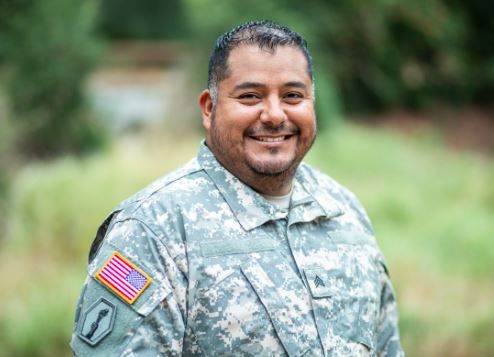Common Risk Factors Within Veteran Homeless Community
October 8, 2021

Across the U.S., there are more than half a million people who lack secure and stable housing. The pandemic has exacerbated risk factors that lead to unstable housing conditions for all populations, but the veteran population is arguably one of the most vulnerable.
In many ways, the veteran population is at a higher risk than non-veterans of becoming homeless as a result of factors that affect the veteran population specifically. According to the National Coalition for Homeless Veterans, Veteran homelessness is a result of a complex set of factors. Here we share six common factors that contribute to homelessness for veterans.
Transition Stress:
When leaving the military, veterans move from a structured environment to a less organized civilian community. Veterans become ultimately responsible for managing their time, responsibilities and mental health challenges. This transition can cause extreme levels of stress and affect a veteran’s ability to manage the transition.
Lack of Family and Social Support Networks:
We all need social connections to live fulfilling and supported lives. Veterans become accustomed to a network of military social supports that provide them with resources while in the service. After they leave the military, many do not have that same network of supports, and without them, some may lack family and social connections to lean on in times of need. They may struggle to develop networks of support in the civilian world, which can then lead to isolation, low self-esteem and social anxiety.
Substance Abuse & Mental Health Challenges:
During active duty, many veterans are exposed to highly traumatizing events that can then follow them into the civilian world. These traumatic experiences may lead to substance abuse and mental health challenges such as Post-Traumatic Stress Disorder (PTSD), a mental health condition that can be triggered by traumatic life events. Those who suffer from substance abuse and mental health challenges have a much harder time finding and keeping jobs and stable housing. According to a report by the Department of Veteran Affairs (VA), the presence of mental disorders such as substance-related disorders and/or mental illness, is the strongest predictor of becoming homeless after discharge from active duty.
Lack of Transferrable Work Experience & Professional Networks:
Military experience and trainings are not always valued experience in the civilian workforce. Although service members have the opportunity to receive degrees while on active duty and can apply to use their GI Bill Benefits (or VR&E) to obtain higher education once discharged, most of the experience that military personnel gain in the military does not transfer to civilian job requirements. Even with transferrable experience, veterans often lack the professional and social networks that the general population uses to gain employment. The labor market is a competitive landscape, and without translatable experience in the workforce or reliable networks, veterans often find themselves at a disadvantage when trying to find jobs.
Lack of Affordable Housing and Livable Income:
Extremely low-income renters are facing a shortage of affordable homes across the U.S. In Colorado, access to affordable housing has drastically decreased as the state’s housing prices have skyrocketed. According to the National Low Income Housing Coalition, Colorado is among the states that has the least access to affordable housing and has less than the national level of affordable and available units for households at or below the extremely low income (ELI) threshold. Increased cost of living and little improvement to minimum wages is making it more difficult for veterans to find affordable housing and have enough income to cover expenses.
Difficulty Navigating Complex Benefits Systems:
Managing complex systems such as Social Security Income and healthcare can be a challenge for those who exited military services. Many veterans look to the Department of Veterans Affairs (VA) for support after transitioning back into the community. The stress of the transition from the military can create a significant challenge for veterans as they try to navigate benefits systems, which potentially compromises their access to healthcare and stable housing supports.
Risk factors can vary, and supports and services should be tailored to those challenges. Housing is essential, but it is not sufficient without also addressing physical health, behavioral health, employment and education and other social supports. It’s imperative to consider a veteran’s needs comprehensively. Services need to be made available, accessible and affordable across the lifespan of our veterans.
The Homes for All Veterans (HAV) program at Rocky Mountain Human Services works with Colorado veterans who are experiencing homelessness or are in danger of becoming homeless to find permanent housing and receive short term case management.
Through the Supportive Services for Veteran Families (SSVF) grant from the VA, HAV works with veterans and their family members to gain stability through housing referrals, short term case management for veterans and members of their households and navigating complex benefits systems such as Medicaid and Social Security.
Veterans in the HAV program work with dedicated case managers who connect them to vital services that help lay the foundation for a stable and comfortable life. HAV has helped countless veterans achieve stable housing through financial support, helping to find affordable housing and building connections to resources and employment services in the community.
If you know a veteran in need of housing support in Colorado, apply to the HAV program by contacting (855) VETS-HAV (838-7428) or emailing HAVreferrals@rmhumanservices.org.






